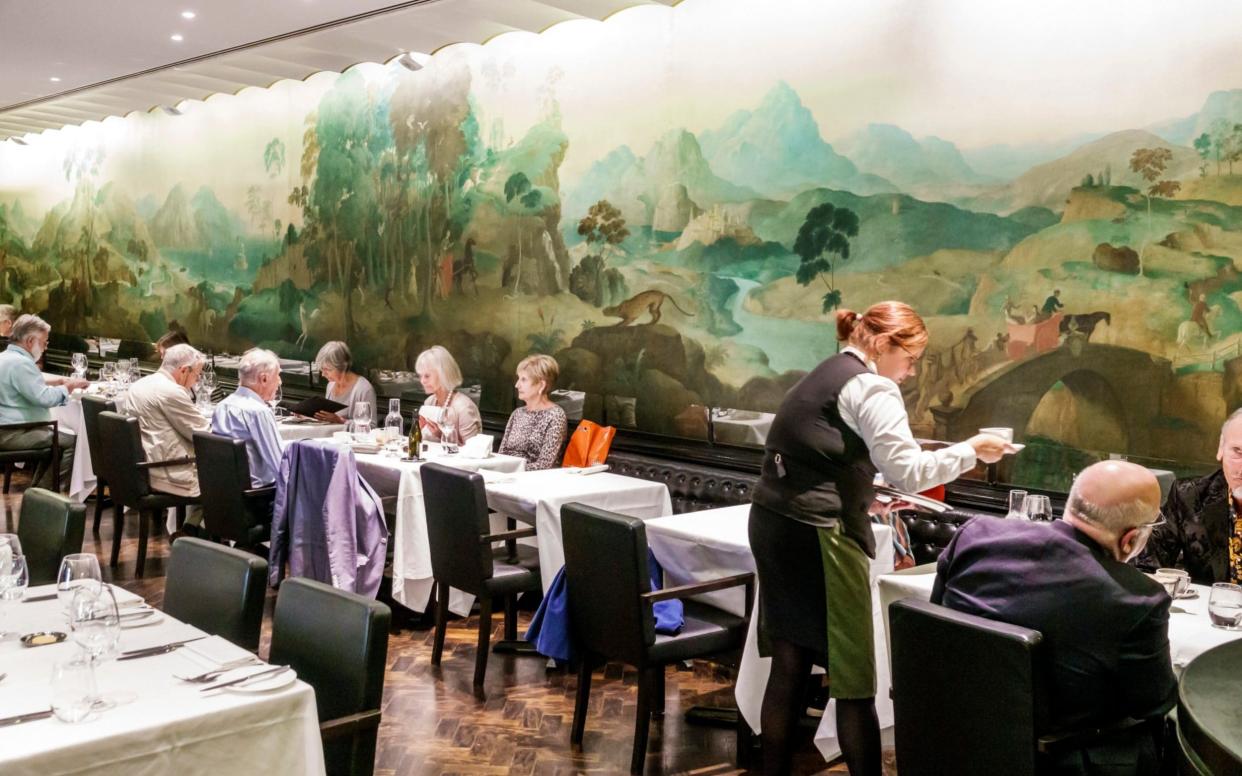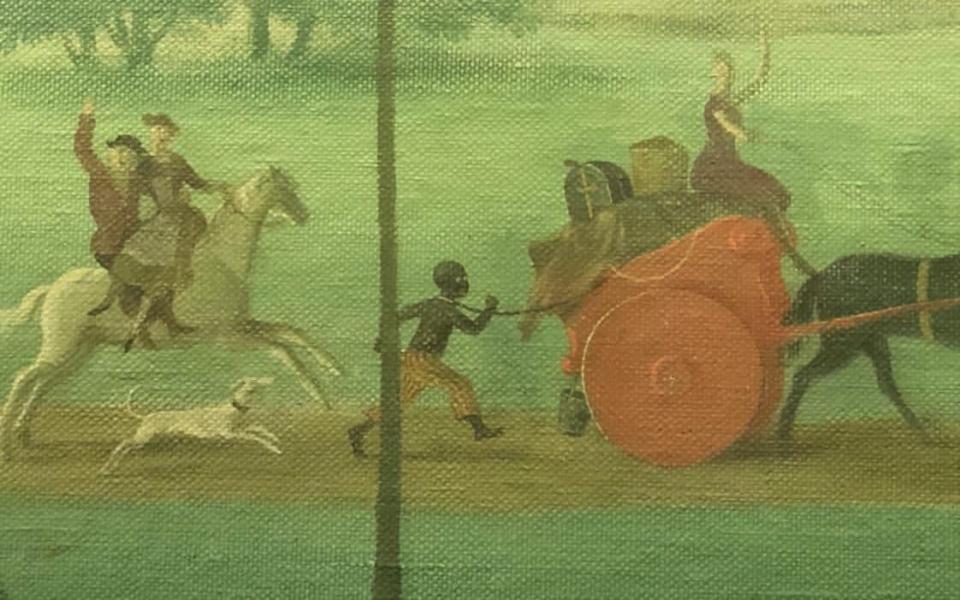Tate Britain will make dining room featuring mural depicting slaves 'more welcoming'

Tate Britain has said it will make its dining room, which features a mural depicting slaves, “more welcoming and inclusive”, following criticism about its racist imagery.
The Rex Whistler restaurant is adorned with The Expedition in Pursuit of Rare Meats (1927), a specially commissioned mural portraying the enslavement of a black child and pain of his mother by the eponymous British artist.
It also features the same boy chasing a horse and cart to which he is attached by a chain around his neck..

Tate Britain has decided to remove a reference to “the most amusing room in Europe” from its website as a petition calling for the removal of the “racist and harmful” mural gains traction online.
In its place, the new interpretation text states the Millbank art gallery is “working to become a space that is more relevant, welcoming and inclusive for everyone... Whistler's treatment of non-white figures reduces them to stereotypes.”
The petition, launched on Friday, suggests the artwork- restored in 2013 as part of a £45m revamp- should be taken down or the restaurant relocated to another room.
“The Tate boast that their restaurant has been described as “The Most Amusing Room in Europe” by the elite that visit for the wine list “long a whispered, greedy little secret among the capital’s bibulous”, however the reality of the room is truly grotesque,” the petition, which has 250 supporters, reads.
“Where the older white demographic can go to enjoying their expensive gluttony whilst they view with amusement, a room purposefully painted with chained up black children, dragged along by white people, for a hunt.”
A Tate spokesperson said: “Tate has been open and transparent about the deeply problematic racist imagery in the Rex Whistler mural. In the context of the mayor of London's recently announced public realm review, we welcome further discussion about it.”
“The interpretation text on the wall alongside the mural and on the website addresses this directly as part of our ongoing work to confront such histories, a process that goes hand in hand with championing a more inclusive story of British art and identity today.”

